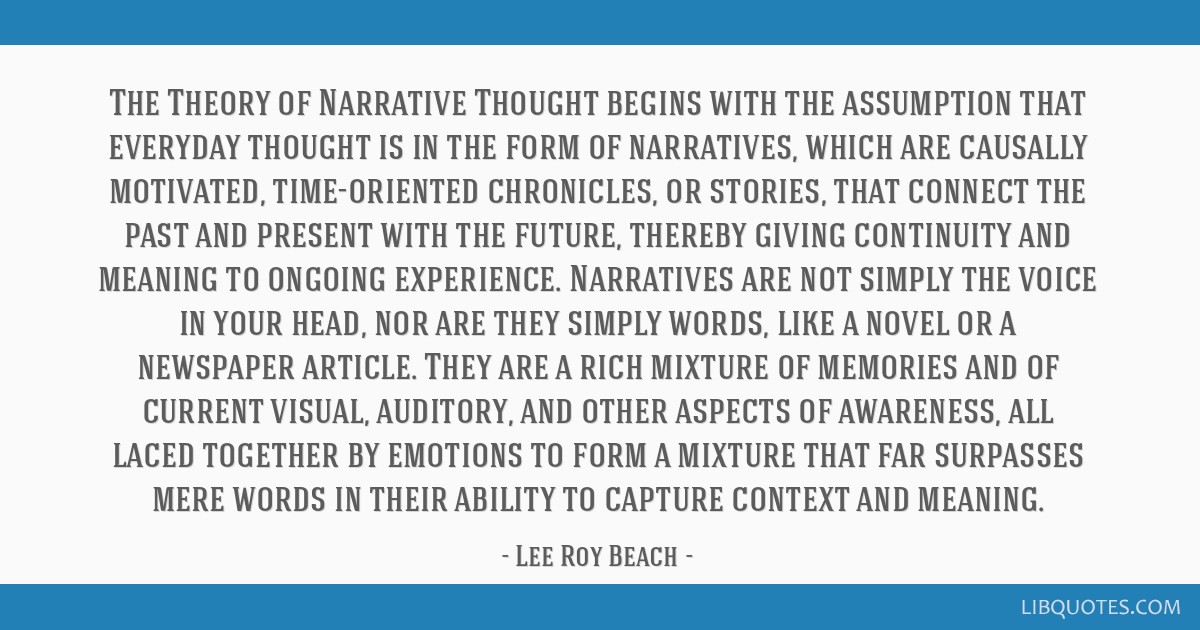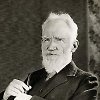The Theory of Narrative Thought begins with the assumption that everyday thought is in the form of narratives, which are causally motivated, time-oriented chronicles, or stories, that connect the past and present with the future, thereby giving continuity and meaning to ongoing experience. Narratives are not simply the voice in your head, nor are they simply words, like a novel or a newspaper article. They are a rich mixture of memories and of current visual, auditory, and other aspects of awareness, all laced together by emotions to form a mixture that far surpasses mere words in their ability to capture context and meaning.
"Cognitive Errors and the Narrative Nature of Epistemic Thought," 2011























